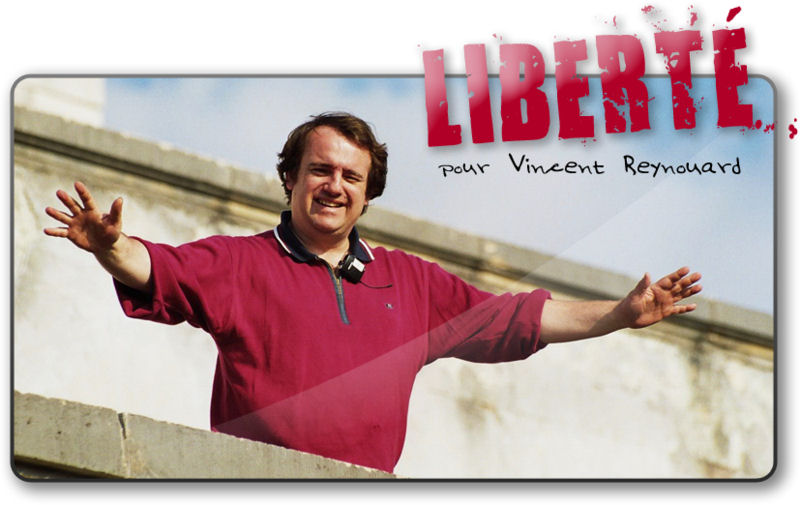This afternoon in Edinburgh the President of the Court of Session, Lord Carloway, rejected the appeal against extradition to France of Vincent Reynouard, the exiled scholar whom Parisian courts seek to jail for his research questioning orthodox history of the ‘Holocaust’ and the ‘massacre at Oradour’.
Regular readers of this blog will be familiar with the background to the case. Vincent was arrested in the Scottish fishing village of Anstruther in November 2023 and has been held in Edinburgh jail for the past fourteen months, despite not being charged (let alone convicted) of any crime under UK law.
France is one of many European countries which criminalise any historical and scientific research questioning the orthodox version of the ‘Holocaust’: the alleged murder of six million Jews in presumed homicidal gas chambers during the Second World War. But Parliament has deliberately avoided passing any such law in the UK. Instead, UK courts – including now Lord Carloway, Scotland’s most senior judge – are engaged in a cowardly criminalisation of revisionism via abuse of other laws such as the Communications Act, and via abuse of the extradition process.

This conveniently avoids any parliamentary debate on the merits of the revisionist case. Though the historicity of the ‘Holocaust’ was not a legal point at issue during the trial, and though he has not indicated any competence of his own on historical matters, Lord Carloway assumes the right to declaim on “the patent falsehood” of Vincent’s work. Lord Carloway makes statements about the Auschwitz death toll and about the notorious ‘confession’ of camp commandant Rudolf Höss, though no expert witness testimony was adduced at any stage of Vincent’s extradition process about these matters.
Lord Carloway does not himself claim personal expertise in 20th century history and does not indicate that he has carried out even a single hour of documentary research on such topics. Notably he relies on the Höss ‘confession’. In what other case would Lord Carloway be happy for a Scottish court to rely on a ‘confession’ obtained by torture and blackmail, or on submissions concerning the scene of the crime that were provided by the Kremlin’s military and intelligence services?
The version of history laid down by the Nuremberg trial – instituted by the victors of the Second World War, and largely based on ‘evidence’ by a Kremlin-controlled ‘commission’ – is protected in France by the ‘Gayssot Law’ enacted in 1990, appropriately enough on the initiative of a French Communist MP allied to a millionaire Jewish socialist.
This ‘Gayssot Law’ was designed to criminalise the work of the pioneering revisionist scholar Professor Robert Faurisson, who though born in Shepperton, West London, to a Scottish mother and French father, lived and taught in France throughout his adult life, latterly as Professor of French Literature at the University of Lyon.

From the mid-1970s until the day before his death in 2018, Professor Faurisson wrote and published detailed research into the alleged ‘gas chambers’, summarising his conclusions in a famous sentence:
“The alleged Hitlerite gas chambers and the alleged genocide of the Jews form one and the same historical lie, which has permitted a gigantic political and financial swindle whose main beneficiaries are the State of Israel and international Zionism and whose main victims are the German people – but not their leaders – and the Palestinian people in their entirety.”
It is a curious coincidence that the Court of Session judgment rejecting Vincent Reynouard’s appeal was delivered one day after Professor Faurisson’s birthday, and a few hours before what has in recent years become a worldwide festival of historical ‘remembrance’ – Holocaust Memorial Day. In 1995 Faurisson directly addressed “Auschwitz: the facts and the legend” in an essay now available online at the Robert Faurisson website.
Vincent Reynouard spoke at the conference in October 2018 – held in Shepperton, the Professor’s birthplace – at which Robert Faurisson gave his final speech, a day before his death. Vincent (who was awarded the Robert Faurisson International Prize in 2020) is today’s leading representative of the Faurissonian tradition of scholarly re-examination of the ‘Holocaust”s evidential basis, while the courts (both in Paris and now sadly in Edinburgh) have abandoned scrutiny of evidence and now prefer to genuflect in submission to ‘Holocaustianity’.
Most of the Western world has moved away from organised religion, but ‘Holocaust’ memorialisation has become a pseudo-religion, with Auschwitz-Birkenau as its Calvary and anti-revisionist legislation as the new blasphemy laws.

Though the UK has no such laws, Lord Carloway affirms in his judgment that Vincent’s online publications are extraditable offences because they can be deemed “grossly offensive” under s.127 of the Communications Act 2007. This is an updating for the internet age of a law originally designed to criminalise obscene telephone calls.
In this instance, the law has been stretched to cover offending “members of the Jewish and other communities whose members perished at Auschwitz and Birkenau. The same applies to those living with the memory of Oradour. It is not necessary to be a member of the relevant communities to be grossly offended by such statements; any reasonable person would be.”
Lord Carloway makes the dire implications clear: “Although it is not an offence to hold these views and, in certain contexts, to express them, it is a breach of section 127 of the 2007 Act to communicate them to the public on the internet.”
By Lord Carloway’s implication, online revisionism is to be deemed criminal in the UK, even when expressed in scholarly terms, and even without a specific parliamentary statute.
This is a blatant attack on fundamental human rights: an attack on the basic principles not only of UK law but of European civilisation’s accepted intellectual standards.
We shall report soon on the next stage in the fight for Vincent Reynouard’s freedom and the fight for real history.



